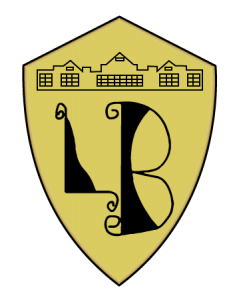Assertive Discipline
The aim of Assertive Discipline is to create a school discipline which is fair and consistent and which establishes a safe, orderly, positive environment in which teaching and learning may operate effectively.
Children are given praise and rewards regularly to encourage and motivate them to behave well.
The rules to follow and behaviour expected of pupils are clearly set out and explained to them. If they choose to disregard the rules, then they have also chosen to accept the consequences. ‘Consequences’ will now be used to mean sanctions or punishments.
This policy will be applied in a structured and consistent way in all areas of school life. It will be applied consistently across the school.
Most importantly, it will keep parents informed about their children’s behaviour in school. Parents will be notified about good behaviour as well as misbehaviour.
Assertive Discipline has 3 parts:-
- Rules
- Praise and Rewards
- Consequences
Rules
Each class will have rules which are displayed in the classroom and taught to the children.
Children are also taught about school rules which apply at all times.
School Rules
- Be polite and well mannered to everyone.
- Do as you are asked by an adult.
- Look after each other and our school. No put downs, no teasing and no bad language.
- Walk sensibly around school.
- Keep your hands and feet and other objects to yourself.
Playground Rules
- Do as you are asked by an adult.
- Keep your hands, feet and other objects to yourself
- Line up quietly and sensibly as soon as the bell rings.
- Look after school equipment.
- Look after each other and our school – no put downs, no teasing and no bad language.
Praise and Rewards
These could be in the form of:
- Spoken praise
- House points
- Stickers
- Positive phone call home
- Certificate
- Star of the Week
- A special privilege
When a child has had a half term in total of no consequences, a certificate will be issued. Children can earn a bronze, silver, gold and then platinum certificate for following rules and consistently demonstrating expected behaviour. Certificates will be sent home.
Consequences
The consequences of not choosing to follow the rules will be :-
- Warning
- Minutes play time missed
- Time out of class
- Telephone call to parents with child present
- Teacher meeting with parents
- Member of the Senior Leadership Team meeting with parents
- Severe Behaviour – sent immediately to Head Teacher
A child’s behaviour is monitored daily. A phone call home will be made if a child receives four consequences in one day. This will, where possible, ask you to talk with your child about his/her behaviour and how it could be improved. The misbehaviours need not be ‘serious’. A number of minor disruptions in a day can disrupt the work of a class.
Parents of children who persistently choose to receive consequences will receive a letter (or telephone call) requesting them to come to school to discuss the child’s behaviour. Where a child has seven consequences in one day the child will be referred to the Head Teacher.
Where a child is considered to have seriously misbehaved this will result in a severe sanction. This may be removal from the classroom, or if considered necessary, removal from school. Parents will immediately be informed of serious misbehaviour.
How can parents help?
Ensure that your children know how they are expected to behave in school. Encourage them to consider and respect others, to be tidy, and to respect property. Show interest in your children’s achievements and praise them when they receive rewards. Co-operate fully with the school when your children do not behave well. Communicate promptly with teachers when asked to do so or if you have concerns.
We have adopted Assertive Discipline at Lord Blyton Primary School:-
- To acknowledge and reward good behaviour.
- To implement a school discipline policy which is seen to be fair and consistent.
- To encourage self-discipline within the children.
- To enable teachers and other staff to deal quickly and efficiently with any discipline problems.
Parents may find these procedures confusing and may feel they are being contacted very frequently. Sometimes this will simply be to let you know your child has received a number of consequences and you should talk to him or her about behaviour at school. At other times the letter may ask you to come to school to discuss the behaviour. Letters are not always bad news, however, and sometimes we will send a letter to say how well your child is behaving at school.
Your children will be talking about ‘consequences’. They may receive rewards and consequences on the same day. As children and parents get used to the system, we hope the rewards will increase and consequences decrease.
